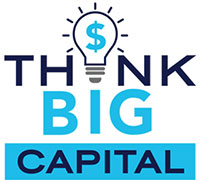What You Need to Know About Equipment Leasing
Leasing your company’s core equipment can be a great way to get what you need to start operations when you don’t have an established business credit score, and it’s also a great way to manage your depreciating asset investments by accessing machines that need to be frequently upgraded or replaced without setting aside the funds to purchase them outright. You can even rely on equipment leasing when you’ve got a short-term contract that requires specialized equipment and your company doesn’t need to retain the machines past the end of that project. So, what do you need to know before signing your first lease agreement? Let’s cover the basics.
Lease Initiation Costs and Financing Fees
While you don’t have to worry about a down payment when you lease, most financing companies do require you to pay a fee at signing to cover the cost of setting up the deal and delivering the equipment to you. Typically, this is no more than three percent of the item’s cost, although it could be higher if your financing company offers options like deferring the fee to a later date or rolling it into the month to month costs of the lease. Both of these options provide you with no fees owed at signing, but they don’t necessarily mean you’re avoiding those fees. Usually, the cost of deferring them in one way or another raises the total lease cost. Still, one to three percent of an item’s value is a lot easier to fund than a down payment of 20 to 30%.
Upgrading Equipment
When you own a machine and it’s time to upgrade, your business needs to deal with the disposal of the old unit as well as the installation of the new one. If it’s got a decent amount of functional life, you might resell it or trade it in to a retailer who sells both new and used units, but you do have to dedicate the resources to locating those options and lining up disposal. When you lease, upgrading is as simple as choosing not to renew the lease on an old piece of equipment, then shopping for a lease on the updated model. Most equipment leasing companies make it easy by offering you the upgrade when it’s time. It just makes sense to do so, since it helps them keep your business as a customer.
Leasing and Credit
A good business credit score helps you access leasing at a lower cost much of the time, so it’s still a good idea to work on your credit score. Lease requirements are a lot more lenient than requirements for loans, though, so it’s easier to access a lease than a loan while building or rebuilding your score.

